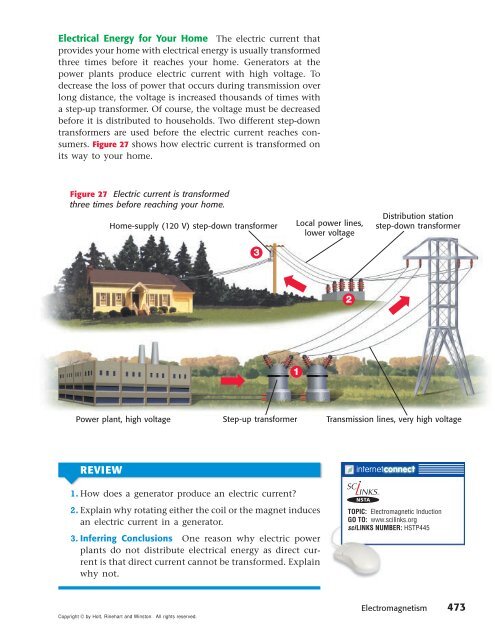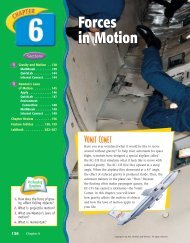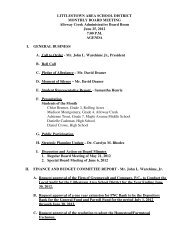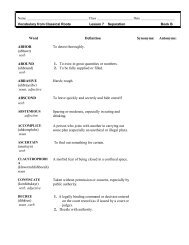Electromagnetism Electromagnetism
Electromagnetism Electromagnetism
Electromagnetism Electromagnetism
You also want an ePaper? Increase the reach of your titles
YUMPU automatically turns print PDFs into web optimized ePapers that Google loves.
Electrical Energy for Your Home The electric current that<br />
provides your home with electrical energy is usually transformed<br />
three times before it reaches your home. Generators at the<br />
power plants produce electric current with high voltage. To<br />
decrease the loss of power that occurs during transmission over<br />
long distance, the voltage is increased thousands of times with<br />
a step-up transformer. Of course, the voltage must be decreased<br />
before it is distributed to households. Two different step-down<br />
transformers are used before the electric current reaches consumers.<br />
Figure 27 shows how electric current is transformed on<br />
its way to your home.<br />
Figure 27 Electric current is transformed<br />
three times before reaching your home.<br />
REVIEW<br />
Home-supply (120 V) step-down transformer<br />
Power plant, high voltage Step-up transformer Transmission lines, very high voltage<br />
1. How does a generator produce an electric current?<br />
2. Explain why rotating either the coil or the magnet induces<br />
an electric current in a generator.<br />
3. Inferring Conclusions One reason why electric power<br />
plants do not distribute electrical energy as direct current<br />
is that direct current cannot be transformed. Explain<br />
why not.<br />
Copyright © by Holt, Rinehart and Winston. All rights reserved.<br />
3<br />
Local power lines,<br />
lower voltage<br />
1<br />
2<br />
NSTA<br />
Distribution station<br />
step-down transformer<br />
TOPIC: Electromagnetic Induction<br />
GO TO: www.scilinks.org<br />
sciLINKS NUMBER: HSTP445<br />
<strong>Electromagnetism</strong> 473





